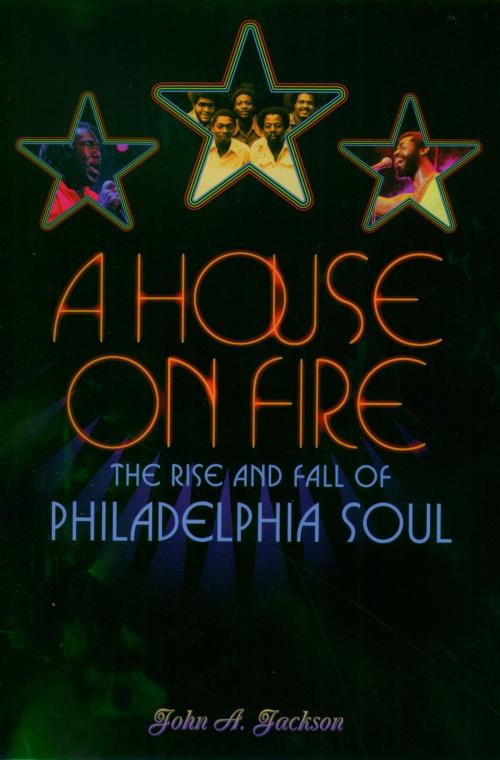A House on Fire
The Rise and Fall of Philadelphia Soul
Nonfiction, Entertainment, Music, Music Styles, Jazz & Blues, Soul, Business & Technical, Recording & Reproduction| Author: | John A. Jackson | ISBN: | 9780190287658 |
| Publisher: | Oxford University Press | Publication: | November 15, 2004 |
| Imprint: | Oxford University Press | Language: | English |
| Author: | John A. Jackson |
| ISBN: | 9780190287658 |
| Publisher: | Oxford University Press |
| Publication: | November 15, 2004 |
| Imprint: | Oxford University Press |
| Language: | English |
"If You Don't Know Me By Now," "The Love I Lost," "The Soul Train Theme," "Then Came You," "Ain't No Stoppin' Us Now"--the distinctive music that became known as Philly Soul dominated the pop music charts in the 1970s. In A House on Fire, John A. Jackson takes us inside the musical empire created by Kenny Gamble, Leon Huff, and Thom Bell, the three men who put Philadelphia Soul on the map. Here is the eye-opening story of three of the most influential and successful music producers of the seventies. Jackson shows how Gamble, Huff, and Bell developed a black recording empire second only to Berry Gordy's Motown, pumping out a string of chart-toppers from Harold Melvin & the Blue Notes, the Spinners, the O'Jays, the Stylistics, and many others. The author underscores the endemic racism of the music business at that time, revealing how the three men were blocked from the major record companies and outlets in Philadelphia because they were black, forcing them to create their own label, sign their own artists, and create their own sound. The sound they created--a sophisticated and glossy form of rhythm and blues, characterized by crisp, melodious harmonies backed by lush, string-laden orchestration and a hard-driving rhythm section--was a glorious success, producing at least twenty-eight gold or platinum albums and thirty-one gold or platinum singles. But after their meteoric rise and years of unstoppable success, their production company finally failed, brought down by payola, competition, a tough economy, and changing popular tastes. Funky, groovy, soulful--Philly Soul was the classic seventies sound. A House on Fire tells the inside story of this remarkable musical phenomenon.
"If You Don't Know Me By Now," "The Love I Lost," "The Soul Train Theme," "Then Came You," "Ain't No Stoppin' Us Now"--the distinctive music that became known as Philly Soul dominated the pop music charts in the 1970s. In A House on Fire, John A. Jackson takes us inside the musical empire created by Kenny Gamble, Leon Huff, and Thom Bell, the three men who put Philadelphia Soul on the map. Here is the eye-opening story of three of the most influential and successful music producers of the seventies. Jackson shows how Gamble, Huff, and Bell developed a black recording empire second only to Berry Gordy's Motown, pumping out a string of chart-toppers from Harold Melvin & the Blue Notes, the Spinners, the O'Jays, the Stylistics, and many others. The author underscores the endemic racism of the music business at that time, revealing how the three men were blocked from the major record companies and outlets in Philadelphia because they were black, forcing them to create their own label, sign their own artists, and create their own sound. The sound they created--a sophisticated and glossy form of rhythm and blues, characterized by crisp, melodious harmonies backed by lush, string-laden orchestration and a hard-driving rhythm section--was a glorious success, producing at least twenty-eight gold or platinum albums and thirty-one gold or platinum singles. But after their meteoric rise and years of unstoppable success, their production company finally failed, brought down by payola, competition, a tough economy, and changing popular tastes. Funky, groovy, soulful--Philly Soul was the classic seventies sound. A House on Fire tells the inside story of this remarkable musical phenomenon.















